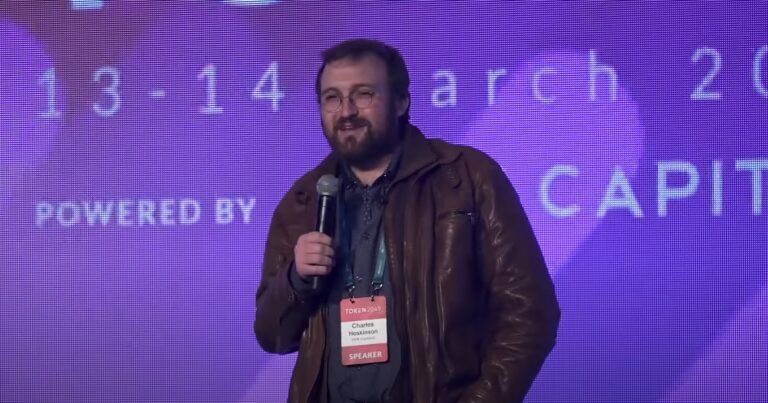Cardano (ADA) founder Charles Hoskinson has confirmed that after the Alonzo hard fork smart contracts will be available on the cryptocurrency’s network, and added that with time the infrastructure on Cardano will only get better
During a live-streamed update, Hoskinson clarified there are two parallel tracks leading up to the hard fork: the combinator event that will give “Alonzo capabilities to the node,” while the second track is about the “infrastructure around that node that allows you to run both off-chain and on-chain code and build full dapps [decentralized applications].”
https://youtube.com/watch?v=6z3j2AkiBd0%3Ffeature%3Doembed
Hoskinson added that he believes the infrastructure necessary for the hard fork will be built “in the August-September time frame,” and added this means that Cardano users will be able to “run smart contracts the moment that hard fork comes on Cardano infrastructure and building an increasingly better environment for Cardano apps to be developed and deployed on.”
The founder of Cardano added that over time the sophistication of what people will be building on top of Cardano will only get better, but noted that since there are numerous integration partners involved the upgrade has numerous stages to avoid damaging the infrastructure around it. Nevertheless, right after the fork smart contracts will be executable.
As CryptoGlobe reported, last month ADA’s popular Yoroi wallet launched a decentralized application connector that will make it easier for users to interact with smart contracts and these applications once they go live on the Cardano network.
It’s worth noting that the Alonzo hard fork is part of the network’s “Goguen” era, named after Joseph Goguen, an American professor of computer science from the University of California and the University of Oxford. The Goguen era comes after the Shelley phase, in which Cardano became a decentralized blockchain and community members became validators.
Alonzo will roll out in three phases: blue, white, and purple. Each opens up more to the public until the upgrade’s full integration is complete. As Hoskinson noted, there’s no “need to go through the full rainbow” as once the hard fork is deployed the next upgrades will be building upon it.
Some decentralized platforms are already preparing to go live on the Cardano network. Cardax, the first decentralized exchange set to launch on it, recently raised $1.5 million from its first community sale.
Cardax is looking to implement key features that go beyond native support for native tokens on Cardano, but also allow users to earn as liquidity providers from the fees the exchange collects, to trade ADA with any native token through the Yoroi Cardano wallet, and to trade in single transactions.
As CryptoGlobe reported, last week Amy Arnott, a portfolio strategist at Morningstar that focuses on cryptocurrencies, has revealed she believes ADA could become one of the largest three cryptocurrencies by market capitalization and go mainstream, along with Bitcoin and Ethereum.
DISCLAIMER
The views and opinions expressed by the author, or any people mentioned in this article, are for informational purposes only, and they do not constitute financial, investment, or other advice. Investing in or trading cryptoassets comes with a risk of financial loss.
Source: Read Full Article
